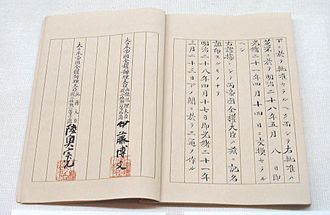A Day of A Fukushima Daiichi Worker
[Updated on January 25]
According to the Japanese magazine SAPIO, a daily routine of an ordinary worker now engaged in a recovery project in Fukushima Daiichi is as follows:
(He stays at a lodgment a subcontractor manages. Between the lodgment and the Fukushima Daiichi, there is a kind of meeting place or a camp for workers sent by various subcontractors to gather and get on buses for the plant, which is called J Village. And, almost 6,000 workers go to the Fukushima Daiichi plant for various kinds of repair and recovery jobs every day.)
05:20
Wakes up.
05:45
Takes breakfast in the lodgment.
06:00
Starts from the lodgment by bus.
06:30
Arrives at the J Village camp.
Puts on a hazard suit.
07:00
Arrives at the Fukushima Daiichi nuclear power plant by bus.
Prepares for work and takes rest.
08:00
Joins a meeting.
08:30
Working on site.
11:30
Lunch & rest.
12:30
Working on site.
14:30
Preparation for exit from the plant.
15:00
Starts from the Fukushima Daiichi nuclear power plant.
15:30
Arrives at the J Village camp.
15:40
Starts from the J Village camp.
16:00
Arrives at the lodgment.
Takes a bath.
Takes a recess.
19:00
Has supper.
Takes a rest.
21:00
Goes to bed.
======================
A worker wears a full-face mask and a Tyvek protective garment with a 20-kg lead vest and three gloves, one on another, on each hand.
Yet, they could receive 250 milli sieverts of doses in two hours, the special limit for workers engaged in nuclear accident restoration.
======================
Those workers are mainly hired not directly by TEPCO, Hitachi, Toshiba, and other big businesses but by the second, the third, the fourth, the fifth, the sixth, or even the seventh tier subcontractors. And, some subcontractors are said to be collecting workers through connection with gangsters.
======================
J-Village originally built for training of soccer players
http://www.tif.ne.jp/jp/spot/spot_disp.php?id=7
A Check Point in Front of the J Village with Police Buses Stationed
http://blogs.yahoo.co.jp/nhkhp146/folder/1516890.html
Now used for preparation of Fukushima Daiichi workers
http://photozou.jp/photo/show/701808/79889940
http://1000ya.isis.ne.jp/1446.html
Fukushima Daiichi Nuclear Power Plant (Max. 900 Milli Sv was measured around here.)
http://gendai.ismedia.jp/articles/-/4665
In the Field of Fukushima Daiichi
http://ameblo.jp/sannriku/day2-20110419.html
On Site of Fukushima Daiichi
http://www.anaroguma.org/komake/fukushima/photo_June1/index.htm
In the Control Room of Fukushima Daiichi
http://www.anaroguma.org/komake/fukushima/photo_June1/index.htm
A Police Checkpoint in Namie Town near Fukushima Daiichi
http://makoto-craftbox.cocolog-nifty.com/blog/2011/06/post-db21.html
(to be continued...)
*** *** *** ***
Act 1:21 Wherefore of these men which have companied with us all the time that the Lord Jesus went in and out among us,
Act 1:22 Beginning from the baptism of John, unto that same day that he was taken up from us, must one be ordained to be a witness with us of his resurrection.






















